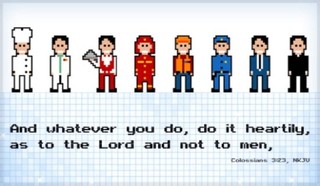
- Recent Translations
- All Translations
Kehillah in Colossae 3:10
Share
Settings
Kehillah in Colossae 3:10 Meaning and Commentary
And have put on the new man
Concerning which, and the putting it on, (See Gill on Ephesians 4:24),
which is renewed in knowledge;
this man, or principle of grace in the soul, is a new one, which never was there before; and there is a daily renovation of it in the spirit of the mind, by the Spirit of God; for as the outward man decays, the inward man, which is the same with this new man, is renewed day by day, increases in holiness and righteousness, grows in grace, and particularly in "knowledge"; light and knowledge of a man's self, of his lost state and condition by nature, of his need of Christ, and of his salvation, is what appears at the first formation of this new man; and the daily renovation of him lies in an increase of spiritual, experimental, and saving knowledge of God, and Christ, and divine things; and indeed, until a man becomes a new creature, he neither knows, nor is he capable of knowing, the things of the Spirit of God; so that this new man, or principle of grace, begins with spiritual knowledge, and is formed in order to it, and its increase lies in it:
after the image of him that created him;
the new man; for this is a creation work, and so not man's, but God's; and is made not after the image of the first man, no not as innocent, and much less as fallen; but after the image of Christ, to which the elect of God are predestinated to he conformed, and which is stamped in regeneration; and more and more appears by every transforming view of Christ, and will be perfected in heaven, when they shall see him as he is, and be perfectly like him, who is not only the pattern, but the Creator of it, even the author and finisher of faith.

